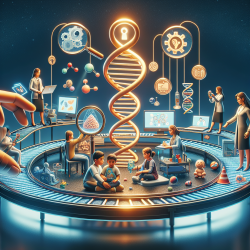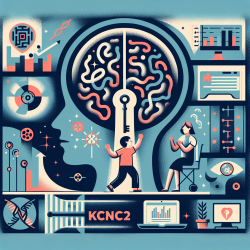Spinal Muscular Atrophy (SMA) is a genetic disorder that affects the motor neurons in the spinal cord, leading to muscle weakness and atrophy. Despite its severity, the understanding of its impact on patients and their families has been limited. A recent qualitative study aimed to fill this gap by exploring the experiences of individuals with SMA, their parents, and clinicians.
The Diagnostic Journey: Challenges and Opportunities
The study highlighted significant delays in diagnosing SMA due to a lack of awareness among primary care providers. This delay often results in prolonged uncertainty and stress for families. Practitioners can improve their skills by increasing their knowledge of SMA symptoms and advocating for earlier genetic testing. This approach not only facilitates timely intervention but also supports families in accessing necessary resources sooner.
The Role of Newborn Screening
The research revealed that parents generally support adding SMA to newborn screening panels. Early detection through newborn screening could significantly reduce the diagnostic journey, allowing for earlier access to care and better preparation for families. Practitioners should advocate for policies that include SMA in newborn screenings and educate parents about the benefits and limitations of early diagnosis.
Addressing the Psychosocial Impact
SMA's impact extends beyond physical health, affecting the emotional and social well-being of patients and their families. The study identified ten thematic areas of psychosocial impact, including confronting premature death, making difficult treatment choices, and dealing with stigma. Practitioners can enhance their skills by developing a holistic approach to care that includes psychological support and resources for families to navigate these challenges.
Confronting Premature Death
One of the most challenging aspects for families is facing the possibility of premature death. Practitioners should provide compassionate communication and support to help families cope with this reality.
Difficult Treatment Choices
Families often face tough decisions regarding treatment options. Practitioners can assist by offering clear information about potential outcomes and supporting families in making informed choices that align with their values.
Managing Social Discomfort and Stigma
Individuals with SMA may experience social discomfort due to physical limitations. Practitioners should work towards creating an inclusive environment that reduces stigma and promotes social engagement for patients.
Encouraging Further Research
The study underscores the need for further research into the psychosocial effects of SMA. Practitioners are encouraged to contribute to ongoing research efforts or initiate studies that explore additional aspects of living with SMA. By doing so, they can help develop more effective interventions and support systems for affected individuals.
In conclusion, practitioners can significantly enhance their skills by integrating the findings from this study into their practice. By advocating for early diagnosis, supporting psychosocial needs, and encouraging further research, practitioners can improve the quality of life for individuals with SMA and their families.
To read the original research paper, please follow this link: Understanding the experiences and needs of individuals with Spinal Muscular Atrophy and their parents: a qualitative study.










